Packing the right food can make or break your camping trip. When space is tight and refrigeration non-existent, canned foods become your best friend—or worst enemy.
Smart choices mean delicious meals with minimal fuss, while poor selections lead to heavy backpacks and disappointing dinners around the campfire.
1. Canned Chili: The One-Pot Wonder
Nothing satisfies a hungry camper like a steaming bowl of chili after a day of adventure. Just pop open the can, heat it over your camp stove, and within minutes you’ve got a protein-packed meal that warms from the inside out. The beauty lies in its versatility.
Dress it up with a sprinkle of cheese, pour it over rice, or scoop it with tortilla chips. Each spoonful delivers sustaining energy when you need it most.
The hearty beans and savory sauce create a filling dish that requires zero prep work. Pro tip: Choose varieties with pull-tabs to eliminate the need for a can opener. For cold-weather camping, chili becomes especially valuable—providing both nutrition and warming comfort when temperatures drop after sunset.
2. Black Beans: Protein-Packed Miracle Workers
Humble yet mighty, canned black beans might be the most versatile addition to your camp kitchen arsenal. They require zero cooking time while delivering substantial protein and fiber—nutrients often lacking in typical trail food. Their neutral flavor profile makes them incredibly adaptable.
Morning scramble? Toss in beans. Lunchtime wrap? Beans add heft. Evening rice bowl? Beans transform it into a complete meal. The liquid they come packed in even serves as a flavor booster for soups or rice dishes—no need to drain unless you prefer to.
Unlike many camping foods that sacrifice nutrition for convenience, black beans maintain their nutritional integrity in canned form. Their compact shape means minimal can crushing in your pack, and their long shelf life ensures they’ll be ready whenever hunger strikes.
3. Canned Tuna: Lightweight Protein Champion
Small but mighty, pouched or canned tuna delivers an impressive protein punch without weighing down your pack. Unlike many protein sources that spoil quickly, tuna remains perfectly preserved until you’re ready to enjoy it.
The compact size makes it ideal for tucking into side pockets or small spaces in your food bag. Backpackers particularly appreciate how tuna transforms bland carbohydrates into satisfying meals. Mix it with instant rice, add it to pasta, or simply enjoy with crackers for a no-cook lunch on the trail. The built-in omega-3 fatty acids support muscle recovery after strenuous hiking days.
Modern packaging innovations have made tuna even more camping-friendly—look for easy-open pouches that eliminate liquid disposal concerns and pack flat when empty. For variety, alternate between classic tuna, flavored varieties, and salmon options throughout longer trips.
4. Diced Tomatoes: The Flavor Foundation
Magical transformers of bland camp meals, canned diced tomatoes create instant sauce bases with minimal effort. Their bright acidity cuts through the monotony of trail food, waking up taste buds dulled by days of repetitive eating. Unlike fresh tomatoes, these durable cans withstand rough packing and temperature fluctuations.
A single can elevates instant rice, turns plain pasta into a proper meal, or creates the foundation for an impressive campsite chili. The liquid provides crucial moisture for rehydrating dried ingredients when water conservation matters. Fire-roasted varieties add smoky depth that mimics long-cooking flavors, despite your limited camp kitchen setup.
Camping veterans swear by the small-sized cans—just enough for a two-person meal without leftovers that require problematic storage. The empty cans nest perfectly inside cooking pots, minimizing space when packing out trash from remote sites.
5. Coconut Milk: Secret Weapon for Gourmet Camp Meals
Unassuming yet transformative, coconut milk elevates humble camp cooking to surprisingly sophisticated heights. Just a few tablespoons turn ordinary instant rice into creamy coconut rice that feels downright luxurious after a day on the trail.
The rich texture creates satisfying mouthfeel that’s often missing from simplified camp cuisine. Morning oatmeal becomes tropical and indulgent with a splash mixed in. Evening curries with dehydrated vegetables gain restaurant-quality creaminess with minimal effort. The high fat content provides slow-burning energy perfect for active outdoor adventures.
Smart campers choose the small 5.4oz cans—just enough for a single meal without leftovers requiring refrigeration. Look for versions with pull-tabs to eliminate the need for a can opener. The empty cans make perfect impromptu cups for morning coffee or evening spirits around the campfire.
6. Canned Spaghetti: Heavy Weight, Light Satisfaction
Childhood nostalgia might tempt you to pack canned pasta, but the reality quickly disappoints in the backcountry. Those hefty cans occupy premium pack space while delivering mushy noodles swimming in sugary sauce—hardly the energy-dense fuel outdoor adventures demand. The weight-to-nutrition ratio simply doesn’t justify the shoulder strain.
Opening one after a long hike often leads to disappointment: lukewarm, oddly-textured pasta that bears little resemblance to the comfort food you remember. The excessive liquid makes them prone to messy spills inside packs.
Most varieties contain minimal protein, leaving you hungry again shortly after eating. If pasta cravings strike, pack dried pasta and a small container of shelf-stable parmesan instead. Combined with those camp-friendly diced tomatoes mentioned earlier, you’ll enjoy a far superior meal that actually resembles real food—without the excessive weight and disappointment.
7. Canned Vegetables: The Mushy Disappointment
Seemingly practical but ultimately disappointing, canned vegetables promise nutrition but deliver mushy, gray shadows of their fresh counterparts. The aggressive canning process destroys texture and dulls flavors, leaving behind sad, waterlogged versions that fail to enhance camp meals.
Their excessive weight-to-nutrition ratio makes little sense for weight-conscious outdoor enthusiasts. The metallic undertones clash with other ingredients, often dominating more subtle flavors in your camp cooking. Once opened, partial cans create food waste or awkward storage situations in the wilderness. The liquid adds unnecessary weight to your already heavy food bag. Far better alternatives exist for getting vegetables into your outdoor diet.
Freeze-dried vegetables rehydrate with actual texture intact, while dehydrated vegetable soup mixes provide flavor and nutrition at a fraction of the weight. Even shelf-stable pouches of pre-cooked vegetables offer superior taste and texture without the excessive liquid and metal cans.
8. Fruit Cocktail: The Syrupy Space Waster
Deceptively appealing in the grocery aisle but regrettably disappointing in camp, canned fruit cocktail combines the worst aspects of outdoor food: heavy weight, excessive sugar, minimal nutrition, and messy eating. Those colorful chunks floating in syrup quickly lose their appeal when you’re lugging them uphill in your already-heavy pack.
The sugar-laden syrup attracts insects to your campsite while providing empty calories rather than sustained energy. Half-eaten portions create wildlife temptations and waste disposal challenges in the backcountry.
The metal can adds unnecessary weight that smart packers eliminate. Dried fruits offer a vastly superior alternative—lightweight, energy-dense, and no trash to pack out. If fresh fruit texture is what you crave, modern freeze-dried fruits provide satisfying crunch without the weight penalty. For special treats, consider single-serve applesauce pouches that pack flat when empty.
9. Creamy Soups: The Spoilage Risk Not Worth Taking
Tempting as they may seem in the store, cream-based canned soups quickly become camp cooking liabilities once opened. The high dairy content creates a perishable situation that’s problematic without refrigeration, especially in warm weather.
Partially consumed cans become food safety hazards after just a few hours in fluctuating outdoor temperatures. The thick consistency often scorches easily on camp stoves, creating difficult cleanup situations when water might be limited. Their heavy weight comes primarily from water content—essentially paying in shoulder strain to transport something freely available at your destination.
The excessive sodium content increases thirst, potentially compromising your hydration plan. For soup cravings in camp, lightweight dried soup packets provide similar comfort without the weight penalty or spoilage concerns. They pack flat, create no garbage to carry out, and allow you to control portion sizes perfectly for your hunger level.
10. Canned Potatoes: The Metallic Spud Disappointment
Perhaps the most pointless addition to any camp kitchen, canned potatoes combine unnecessary weight with deeply unsatisfying eating experiences. Each can contains mostly water weight—a puzzling choice when camping typically provides access to water at your destination.
The texture ranges from oddly rubbery to mushily disintegrating, with neither option resembling actual potatoes. A peculiar metallic flavor permeates each bite, overwhelming any seasonings you might add. Their dense weight takes up valuable pack space that could hold multiple meals’ worth of more efficient foods. The awkward round shape doesn’t pack efficiently in backpacks designed for flatter items. Instant potato flakes provide the same starchy satisfaction at a fraction of the weight and space.
For fresh potato lovers, small new potatoes cook quickly over camp stoves and provide authentic texture without processing. Some ultralight backpackers even carry a few instant hash brown packets for morning meals with zero weight penalty.
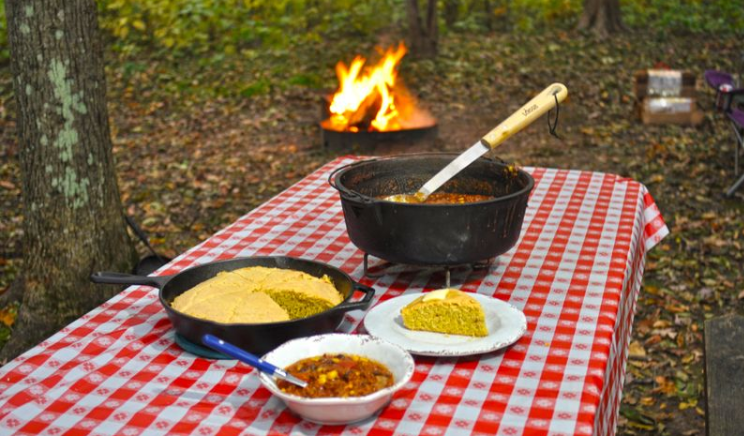
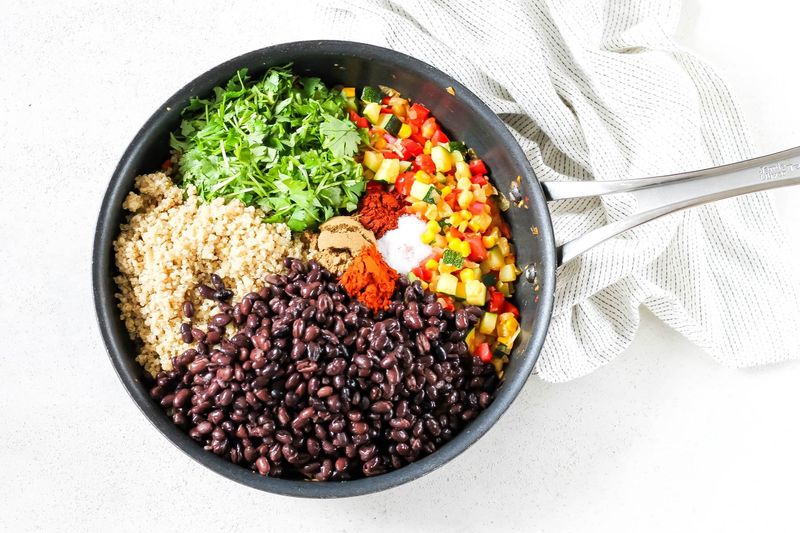
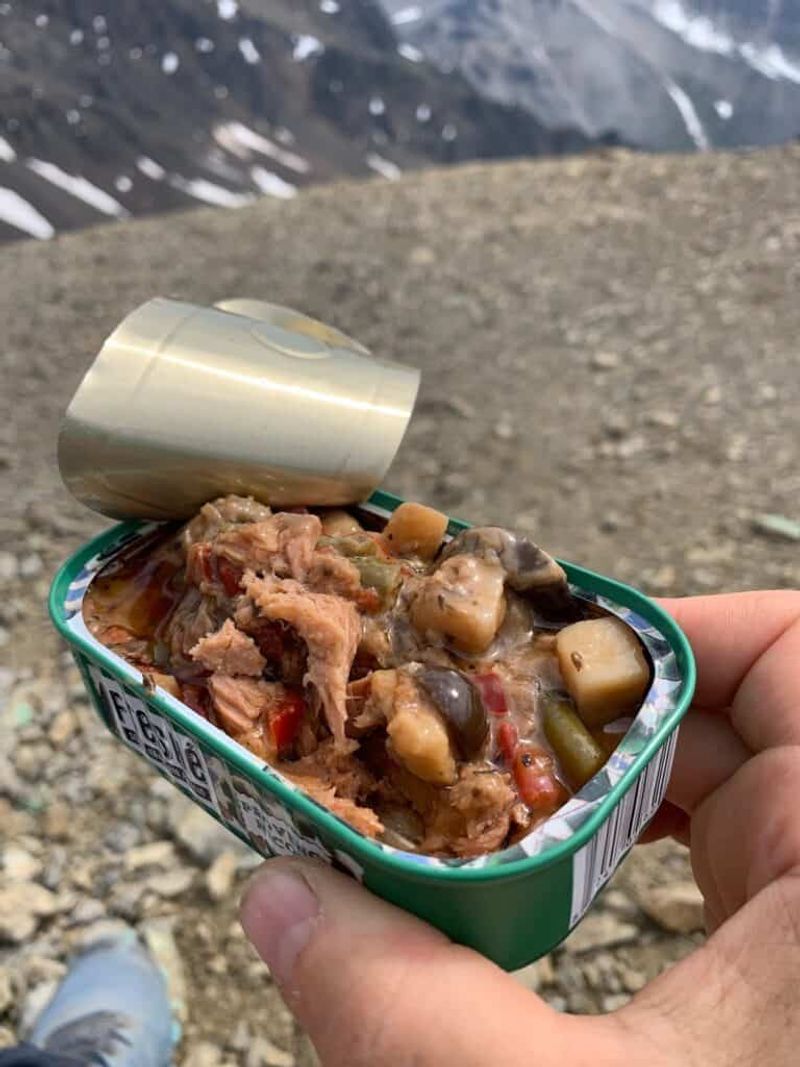
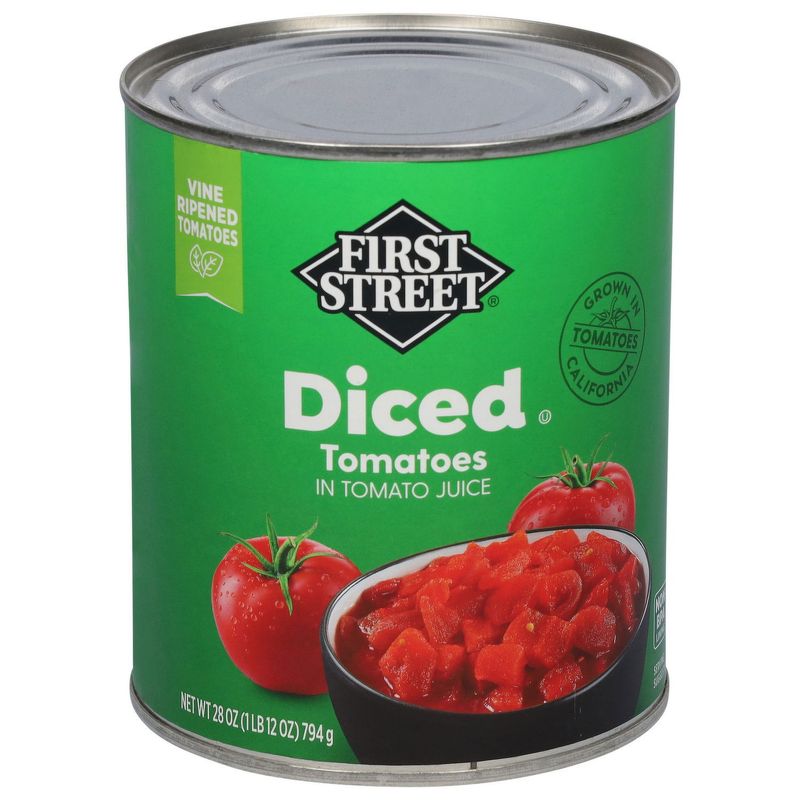
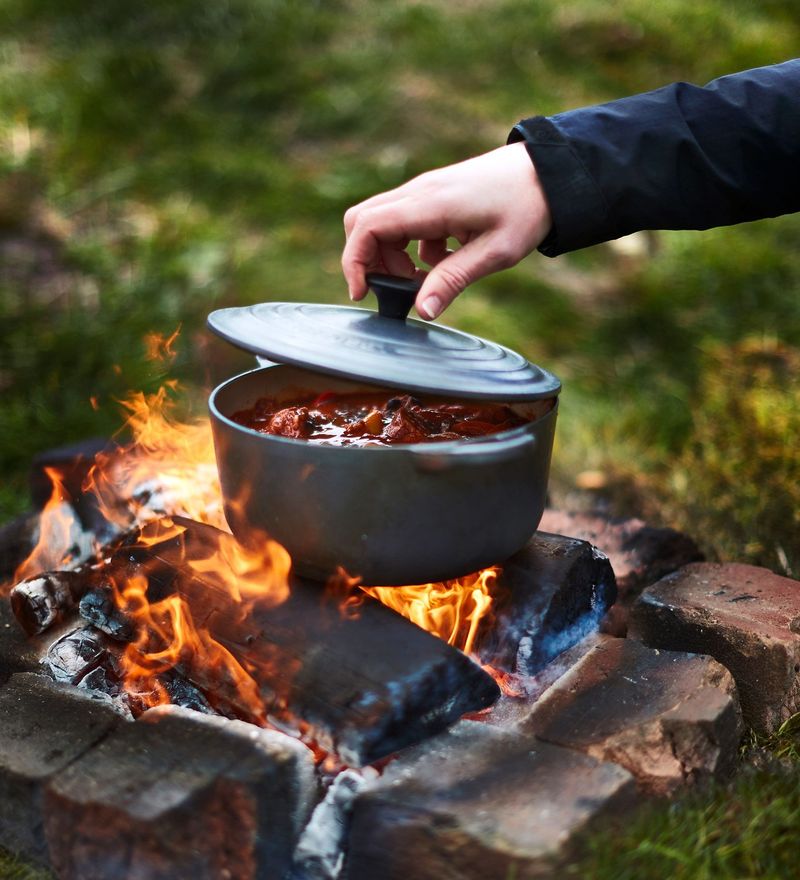
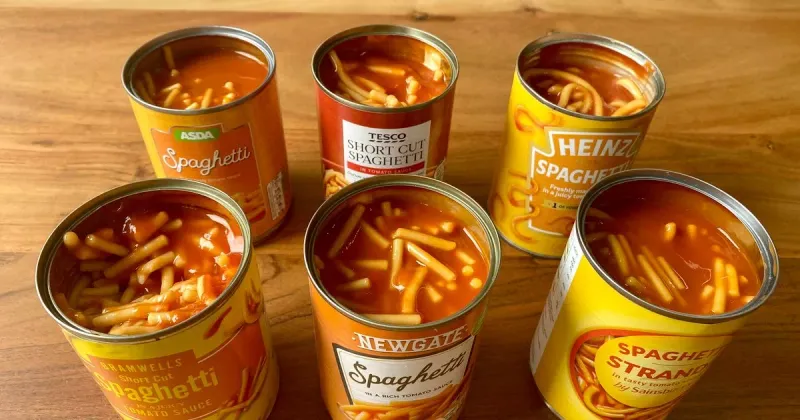
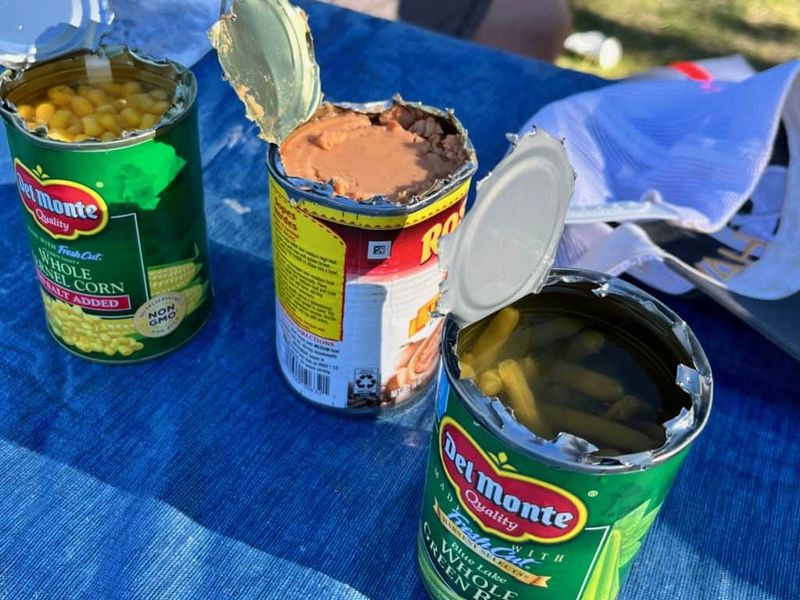
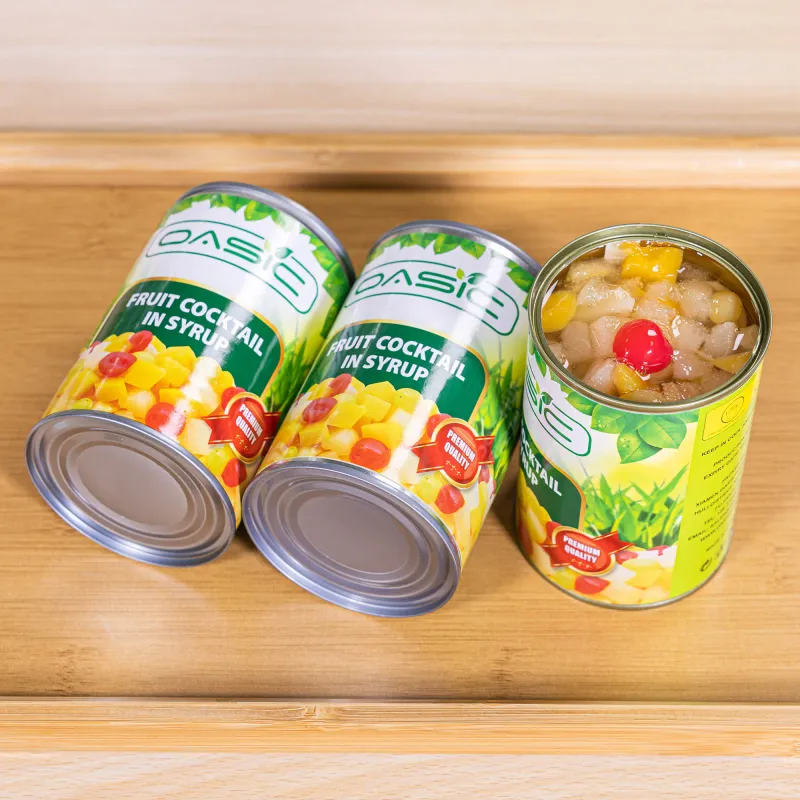
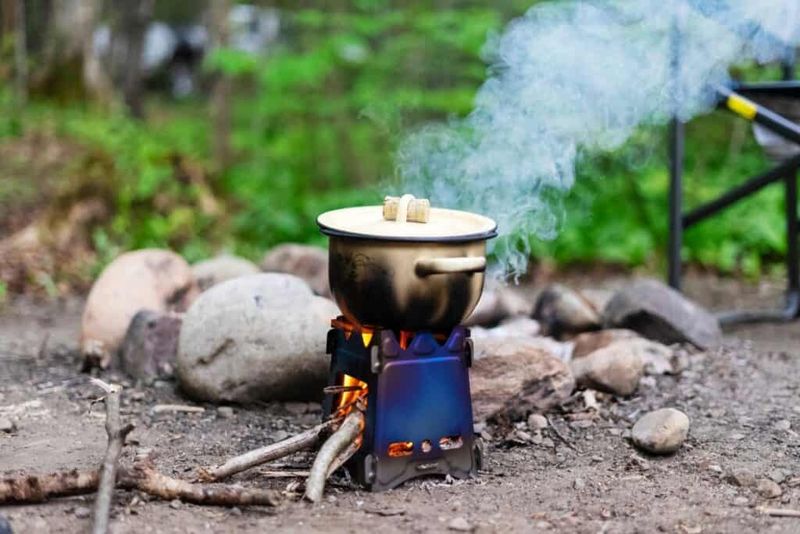
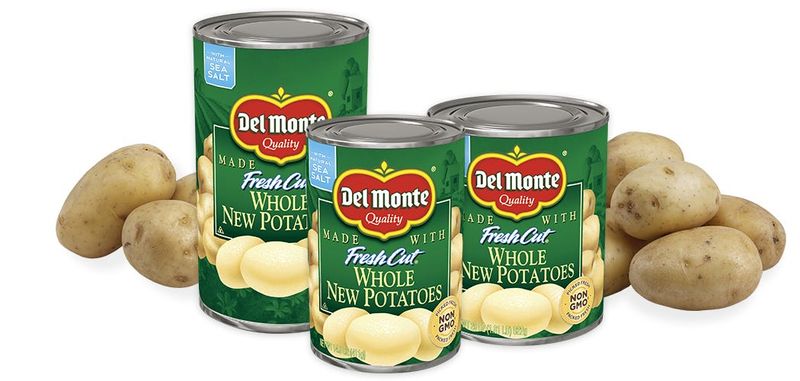
Leave a comment